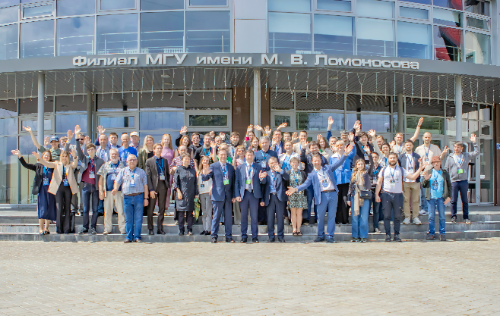The aim of the COVID.SI project is to scan the libraries of chemical compounds to find cure for the new coronavirus infection. Scientists use computer technologies to search for ligands – little molecules capable of binding to the virus’s proteins and alter the specific process essential to its biochemistry. The problem is that the total number of all possible molecular structures is so great that it is figuratively called the chemical Universe, and going through all of its molecules is like looking for a needle in a haystack. The organizers’ resources are insufficient for such computing, so they resort to assistance from citizen’s science, i.e. volunteers. This is akin to crowd funding, except that instead of money people donate part of their computer’s capacity, Internet traffic, and power.

COVID.SI project was initiated by scientists from Slovenia, and its international team includes experts in biology, chemistry, pharmaceutics, bioinformatics, IT, and mathematics. One of them is Natalia Nikitina, Cand. Sci. in Technology, Researcher at the Telecommunication Systems Laboratory of the Institute of Applied Mathematical Research of the Karelian Research Centre RAS. She was the one to implement a system through which members of the volunteer computing community can join the virtual screening for an anti-coronavirus drug.
– This procedure requires much capacity, not available to the small team of biologists. That is why we started an additional project SiDock@home for participants of the global volunteer computing community. Anyone can join. After two months of operating in a test mode, our project was launched to the full on December 17th. Even after these two months, SiDock@home has gathered 25x more capacity than the main project COVID.SI over the seven months of its operation!
The Institute of Applied Mathematical Research and Natalia Nikitina have had substantial practice of organizing volunteer computing for finding efficient solutions before. Natalia has already participated in virtual drug screening, so this task is not new to her. She also remarks that apart from contributing to the common good, participation in this project would enrich the institute’s experience in this sphere.
– Volunteer computing is a complex technical process on the one hand, and the process of interactions between lots of people on voluntary basis, on the other. Inevitably, issues arise, some of which can be handled by purely mathematical methods – the expert explained. – Say, if there is a surge of repetitive results which carry no novel information, it is possible to mathematically work out such rules of the game where participants would benefit from performing varied tasks. Eventually, all participants earn credits points and get rewarded with special badges. There are other mechanisms that can be developed – to combat result forgery or run cross-checks.
Participants of volunteer computing themselves, however, need not be experts in either mathematics or biology – a minimal level of computer literacy would suffice. Go to https://www.sidock.si/ to download BOINC software, install it on your computer, select SiDock@home project, and launch it. The system operates in the background mode, being the most active during the lowest computer load hours. Computing results are delivered automatically. The project has already attracted over three hundred participants from different countries.
Thus, each one of us can help control the infection not only by following the prevention guidelines, but also by contributing to the search for medication.





